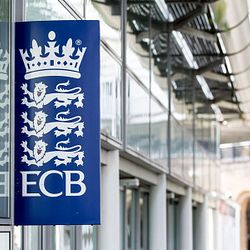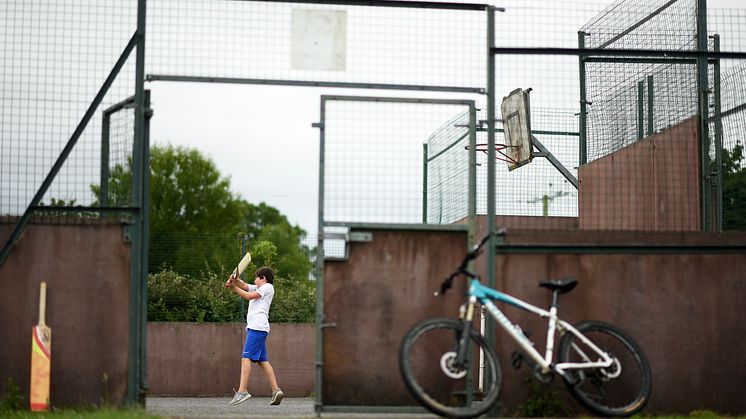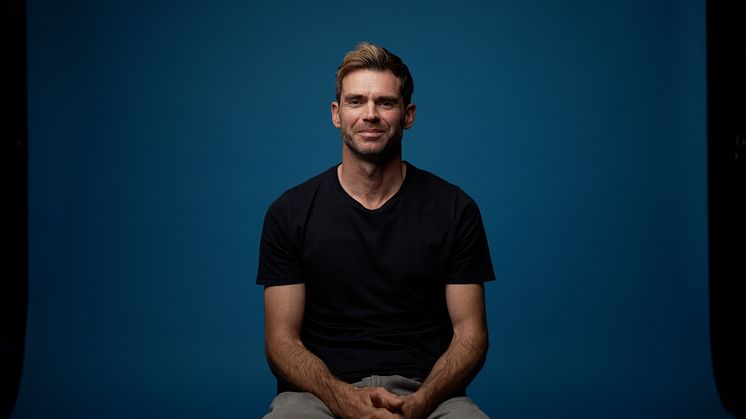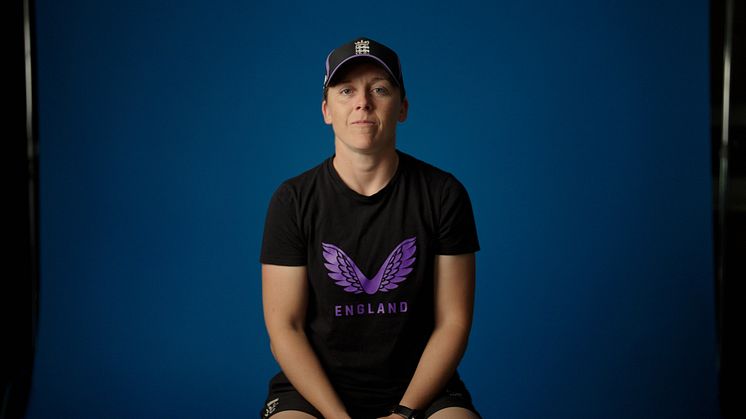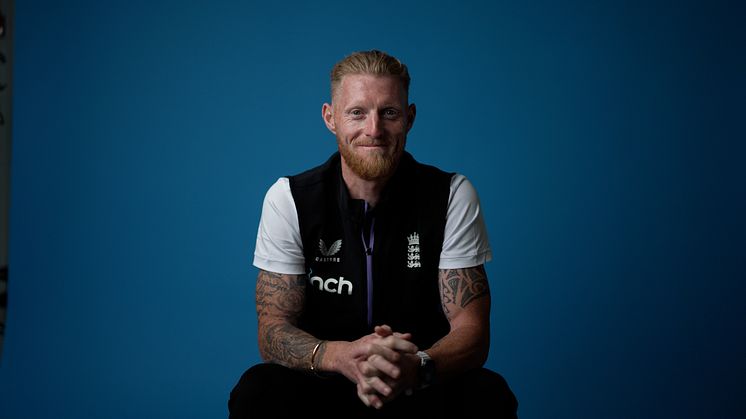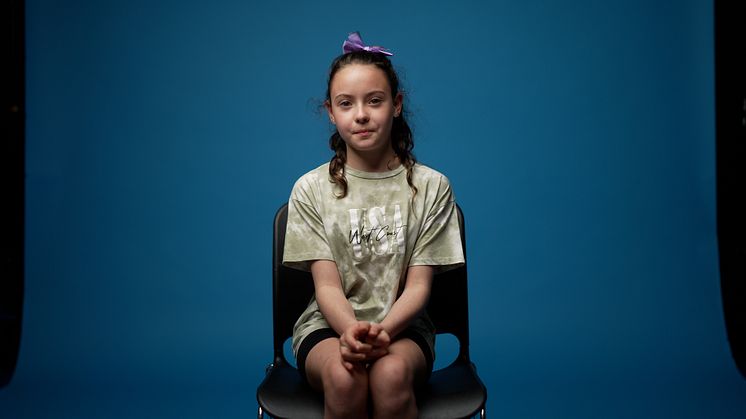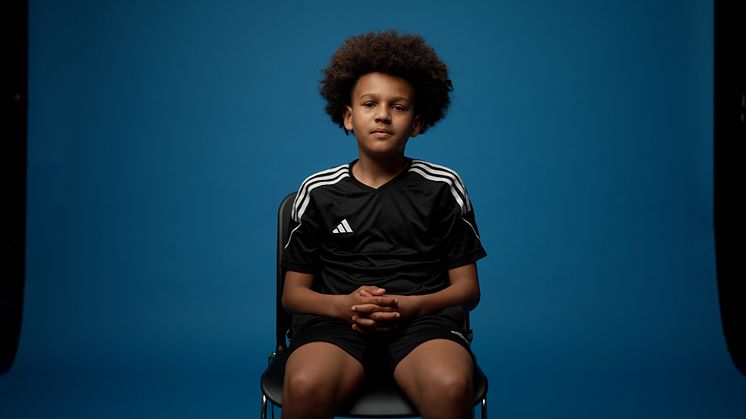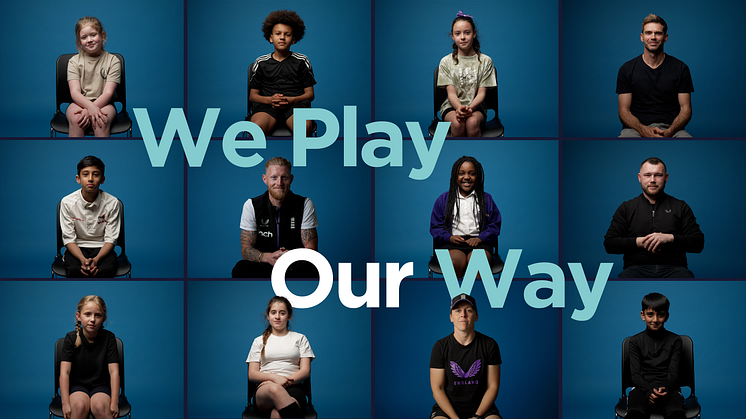
Press release -
England stars urge kids to get playing in new video as 2024 is on track to be record year for kids’ cricket - under embargo until 11:00AM on 13 August 2024
STRICTLY UNDER EMBARGO UNTIL 11:00AM ON TUESDAY 13 AUGUST 2024
- The ECB has enlisted England stars from the Men’s, Women’s and Disability squads to feature in a new video alongside school children, to get even more kids playing cricket during the summer holidays
- In the first of two parts, we hear how unique the sport can be to different individuals, who play the game in their own ways, with their friends and family, in their favourite places
- In 2023, a record 1.1 million children were supported to play cricket by ECB and partner programmes, and 2024 is on track to be even bigger for kids’ cricket
- The latest ECB campaign is encouraging more people to find their way to play, no matter if that is casual cricket at home, in the street, at the local park, at school, or at a local club or community project.
- Working with the campaigning organisation Playing Out we’re also raising awareness and linking to materials so local communities can safely close roads for outside play.
England stars and school children have joined forces to urge more kids to pick up a bat and ball - showcasing all the ways in which people play cricket, whether in the back garden, at school, in the park, in the street, on the beach or at their local club.
England captains Ben Stokes and Heather Knight feature in a new video, alongside Men’s legend and record wicket-taker Jimmy Anderson and England Men’s Deaf team international Joel Harris. In what is set to be a record year for kids’ participation in cricket, they appear alongside school children with the ambition of inspiring even more children to take up the sport, by giving their own perspectives on what cricket is to them, from playing in packed out stadiums to playing in the back garden with friends and family.
Alongside the new video, the ECB has collaborated with the campaigning organisation Playing Out to raise awareness of how local communities can safely close roads for outside play, encouraging them to get active and enjoy the game safely even in areas where outdoor space is limited. Links to Playing Out’s materials will be available through the ECB website to make it easier for communities to act.
Featuring next to the England stars are children from Mayfield Primary School in Oldham, including Elliot, aged 9 and Olivia, aged 10 who share why they love cricket. Elliot explains that he loves playing at his club because his teammates are so motivational, while Olivia likes playing cricket with her best friend Abigail, who says she is a really good bowler.
2024 set to be a big year for kids’ cricket
In 2023, a record 1.1 million children were supported to play cricket by ECB and partner programmes, and 2024 is now on track to surpass this.
Ahead of the 2026 ICC Women’s T20 World Cup and the 2030 ICC Men’s T20 World Cup, more investment than ever will go into grassroots cricket to maximise their impact to inspire the next generation.
The ECB already invests £4 million each year to support the free delivery of cricket in schools via Chance to Shine and Lord's Taverners, reaching 600,000 children, and working with every County Cricket Board across England and Wales.
This number will now increase as, in April, following extensive discussions with the ECB, the Government announced a £35 million investment in grassroots cricket facilities and widening access to the sport within state schools, enabling over 900,000 young people to play cricket over the next five years.
Beyond schools’ cricket, the ECB also funds or supports a range of other grassroots programmes which resulted in over a million children and young people playing the sport last year. From the National Programmes of All Stars and Dynamos for 5 – 11 year olds, to support for charity partners such as ACE, Lord’s Taverners, Chance to Shine, SACA and the MCC Foundation, cricket programmes in communities cater for every ability, with a clear focus on making cricket more accessible and inclusive.
The Play section of the ECB site contains support and materials for anyone who wants to get into cricket, or return to the sport, with information on clubs and community projects close to your home, materials for schools, or simply ideas on how you can play in the back garden or street.
-----------
Quotes
Former England Men’s international player Jimmy Anderson said: “Like every other kid in the country, I started playing at home by picking up a bat and a ball and giving it a go. I was lucky that my dad played and I went to watch him at the local club but now there are way more opportunities to give cricket a try, whether that is at school, or at home or out with your mates. I’d encourage any young boy or girl to give it a try and you never know where it can lead.”
England Women’s Captain Heather Knight said: “I loved playing cricket with my brother when I was a kid, and now I love playing with his daughter in the back garden. I’m also fortunate that being a cricketer now also gives me the chance to have fun, with my friends, out in a field all day, and I’d love more young girls in future to be able to experience the joy that brings.”
England Men’s Test Captain Ben Stokes recently visited Hawthorn Primary School in Newcastle upon Tyne, to take part in a PE session with the children. At that visit, Ben said: “When kids are at a young age, there are completely different levels of skills amongst them all, but that isn’t something we look for – we look for the smiles and the enjoyment they get out of the cricket session. I can tell you that every kid out there today has been smiling constantly, which has been great to see. We need to make cricket more accessible, whether that is at home or at school, so that even more kids can love the sport.”
England Deaf International Joel Harris said: “When I started playing the sport, I never thought I’d end up representing my country all around the world. Cricket has given me that opportunity and now part of my reason for playing is that I want to inspire more people – maybe some people who may not think cricket is for them – to give it a go and see where it takes them.”
Chief Executive Officer of the ECB, Richard Gould, said: “The beauty of cricket is that it is a lot of different things to a lot of different people. It can be at your local village club, it could be a game of tape ball in a car park, or it could be using a picnic bag for stumps on the beach. The uniting thing about our great sport is that it brings people and communities together and the more children that take up the sport, in whatever way they want to, the better it is for the long-term health of cricket.”
Ingrid Skeels, Co-Founder of Playing Out said: “Outdoor free play is the foundation to children’s physical activity, physical literacy and the doorway to informal sport. Safe spaces to play out have increasingly been lost in communities, due to traffic volume and speed, public land being sold or developed and a growing ‘No Ball Games’ culture. Children from the most disadvantaged areas are most impacted by this, as other alternatives - paid-for, organised activities further from home - are less accessible to them. If we want all children to be healthy and discover the joys of cricket and other sport, we need to make it safer for children to play together close to home and easily access parks and other spaces.”
Quotes from children from Mayfield Primary School in Oldham who featured in the video
Olivia said: “I like playing cricket with my best friend Abigail. Abigail’s a really good batter and she says that I’m a really good bowler.”
Amari said: “What we like to do at my school, if it’s raining outside, is play quick cricket in the hall. If one of our best batters has been playing for ages, our sports teacher does his best to get him out. Then when it’s the teacher’s turn to play and we manage to get him out it makes us all scream!”
Elliot said: “I play cricket at my cricket club, with my team mates, because they are motivational. On my street, we play on the road, and the ball can just go anywhere. In my garden the ball can go over the fence at any point. But, at my cricket club I can hit it as hard as I want because it is a big area. My favourite place to play is my garden because I get to play with my family and my brother.”
-ends-
Notes to editors
- The ECB wants every state school child to have the chance to play cricket. We spend more than £4m a year delivering cricket through our partners to more than 600,000 children. Our funding can only go so far, however, and we have therefore been working with Government to secure additional support to enable us to go much further in delivering cricket in state schools. In April 2024, the Government committed £35m towards grassroots cricket facilities and widening access to the sport within state schools, enabling over 900,000 young people to play cricket over the next five years. This investment is due to be delivered across a period during which England and Wales host the 2026 ICC Women’s T20 World Cup, the 2030 ICC Men’s T20 World Cup and cricket returns to the Olympics for the first time in over 120 years, includes a major capital programme that will see 16 state-of-the-art all-weather cricket domes built within host cities across England. For more information see here.
- We know that funding isn’t the only challenge. For too many schools, sport is at the periphery given a focus on academic subjects, which is why, along with other sporting governing bodies, we are calling for the Government to commit to a mandatory two hours’ quality sport or PE in schools each week, and for every child to be guaranteed the opportunity to be active for an hour a day inside and outside of the school setting. For more information see here.
- Through the ECB’s Youth Strategy we have been funding Chance to Shine and Lord’s Taverners focuses to deliver cricket in more schools with students in lower socio-economic groups (LSEG) and Special Educational Needs and disabilities. Over 9 in 10 teachers from the schools involved in this work said that the programmes improved physical, mental, personal and social wellbeing. For more information see here.
- More information on the ECB’s initiatives to take cricket to more people can be found here: https://www.ecb.co.uk/about/edi/edi-in-action.
The ECB currently funds, or directly runs, a number of other initiatives across the country to get people playing cricket recreationally, including:
- All Stars and Dynamos are the ECB’s National Programmes for kids aged 5 – 11. These programmes have now taken the sport to 350,000 children since their launch in 2017.
- A National Core Cities Tape Ball Competition, part of the ECB’s Core Cities programme designed to engage diverse communities in urban areas, to break down barriers and drive grassroots participation.
- Chance to Shine and Lord’s Taverners also support local communities through their Chance to Shine Street Clubs and Lord’s Taverners Wicketz programmes, taking cricket to new places in urban areas.
- Funding the MCC Foundation to expand its work delivering coaching and match play to thousands of state educated young people, opening up access to talent pathways to youngster who might otherwise miss out. This has allowed the MCC Foundation to expand its network of hubs, increasing them from 77 at the moment, to around 150 in 2025 with funding from the MCC as well. These will provide free-to-access training and match play to around 2,000 more young people by 2025. Overall, over 5,000 places will be open to state educated young people aged 11-16 across the country by 2025 with up to 45% of these places for girls.
- Another Official Charity Partner, the African Caribbean Engagement (ACE) Programme has a three-year funding plan to enable its work in six cities and to expand into additional London boroughs. With this the programme aims to engage over 42,000 young people from Black Communities. The funding arrangement will allow ACE to further support African and Caribbean cricket clubs nationally.
Categories


